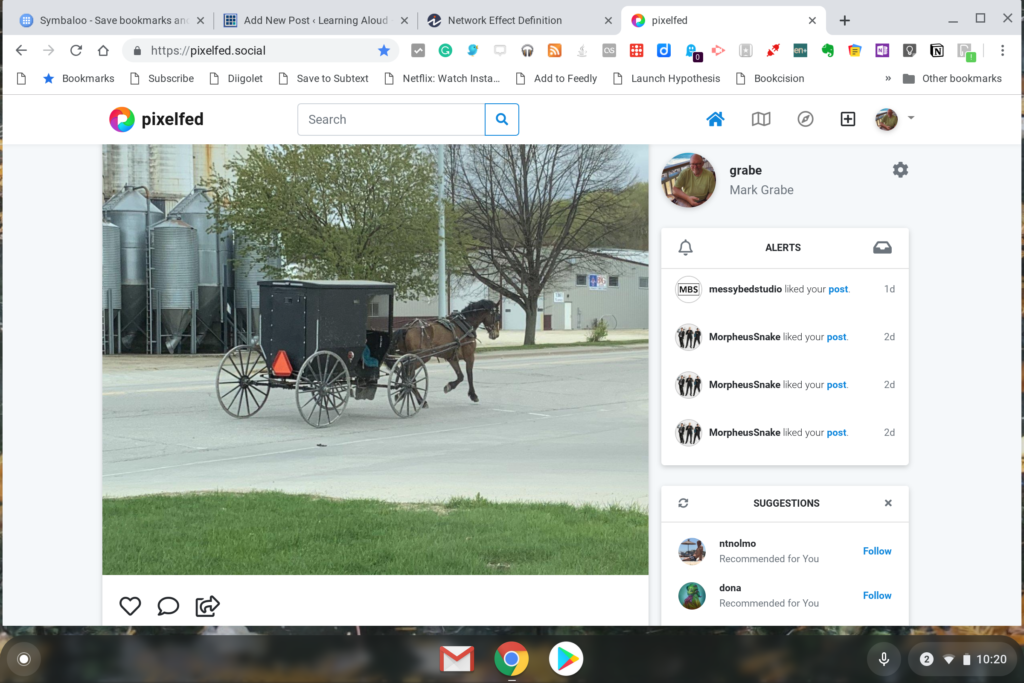The definition of network effect argues that the value of a networked service increases as nodes/people are added. Translated – you won’t be happy online unless you are where everyone else is.
Despite what is becoming obvious about “free” internet services, people do not leave. They complain. The threaten. But, they do not leave. They stay despite the known damage to their personal privacy because others also stay.
In general, I just don’t like monopolistic online companies. I can blunt their collection of my private information, but I just as a matter of policy want to see competition in important areas of the economy. I try to diversify my online activity. This reduces the access any given company has to a record of my behavior, but also encourages the development of other companies. Here are some options I use for social media services you may not know exist.
My alternative to Twitter is Mastodon. I have fewer complaints targeted at Twitter than the other two services mentioned here. I am also the most lukewarm in promoting Mastodon. My reluctance has nothing to do with the technology. I just don’t find the substance I am looking for in the audience this service has attracted. Too many cat photos, anime, and meaningless posts. There are also some instances that promote sex work. An instance is like a separate group operating from a separate server. Instances are combined into a federation and it is possible to view the public contributions to all instances. Mastodon is a federated system of instances and I guess would prefer participants find a home with an instance suited to their interests, but this does not seem to have happened.
My alternative to Facebook is Diaspora. I limit my Facebook activity to my political comments and I post other categories on Diaspora. Diaspora works well allowing public, aspect specific (the instances you participate in), and self-assigned categories of posts (family, friends, etc.). I admit that I have not worked hard enough at this service to become part of a group, but the potential is there.
My alternative to Instagram is pixelfed. I tend to think of Instagram is a service you use to share photos with a relatively small group of friends. If you can convince this small group to sign up for pixelfed, you will find the service very easy to use. Again, you either use this service to share with friends who will follow you there or you use this service to meet people based on a common interest in photography. Of the alternatives I have proposed, pixelfed probably represents the easiest transition.

43 total views , 1 views today